Meet an expert Instrumentation and Calibration Field Service Manager
Syed Inayat Ali Shah has a Master’s degree in Electrical and Electronics Engineering and has worked as an Instrumentation Field Service Engineer. He is now Head of Maintenance at Qarshi Research International Pvt Ltd, (QRI) based in Pakistan.
In this article Syed Inayat Ali Shah shares his career path from Field Service Engineer to management within commercial labs and instrumentation and calibration services.
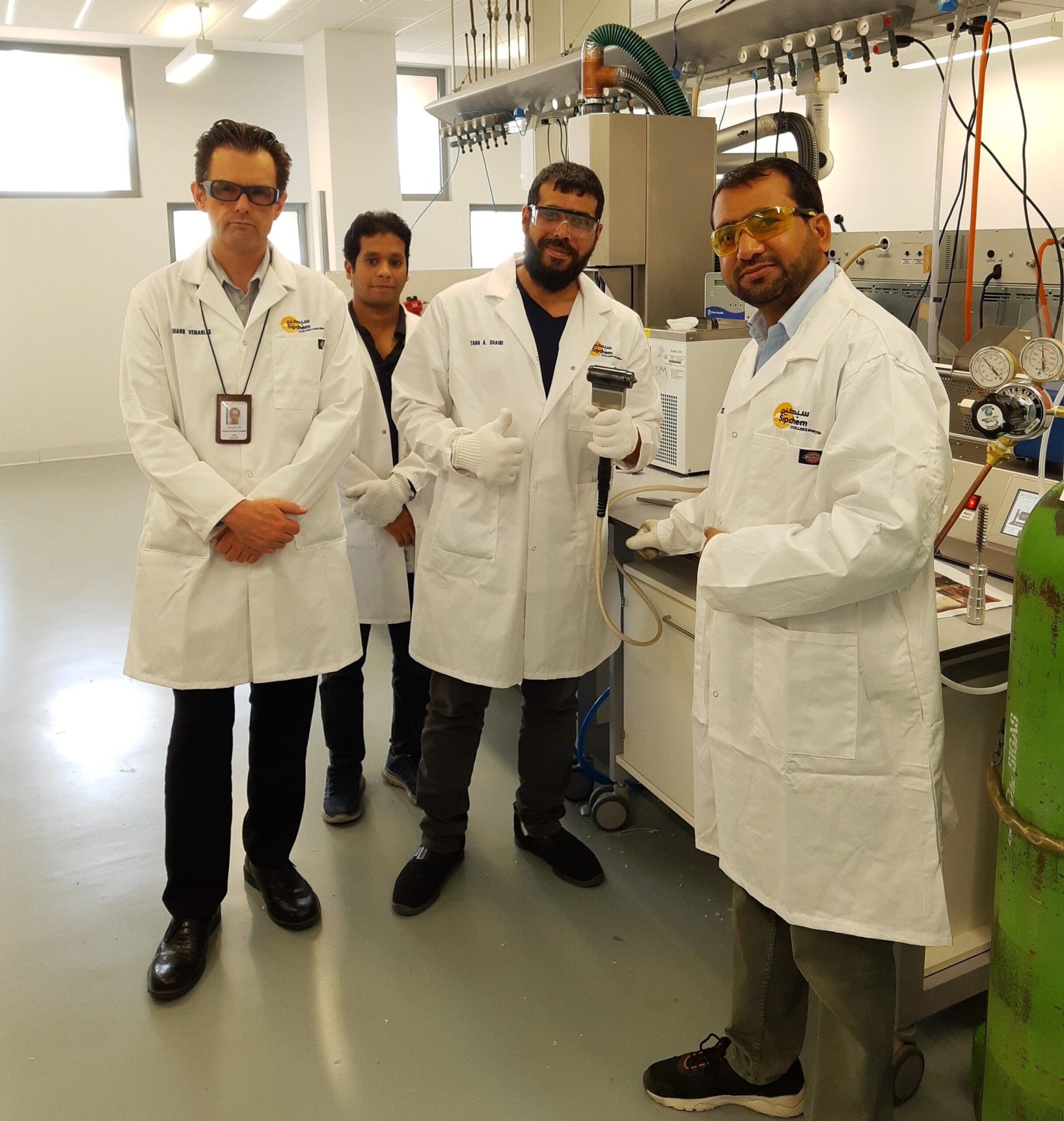

Field Service Engineer to Manager instrumentation and calibration – meet Syed Inayat Ali Shah
Background and path to engineering
Have you always been interested in the way things work?
Yes, especially things like how electricity is generated, how the phone works, and how vehicles move.
Did you like science and technology as a child?
Yes, during my childhood I mostly watched programmes about science and thought about how different things worked.
Was there a family member who encouraged you to study engineering?
No, it was my choice as my family wanted me to become a medical doctor.
Why did you decide to study electrical and electronics engineering?
I like electronics and worked on many small projects while I was a student.
For example, I worked on a wind power generator and an automatic house light system.
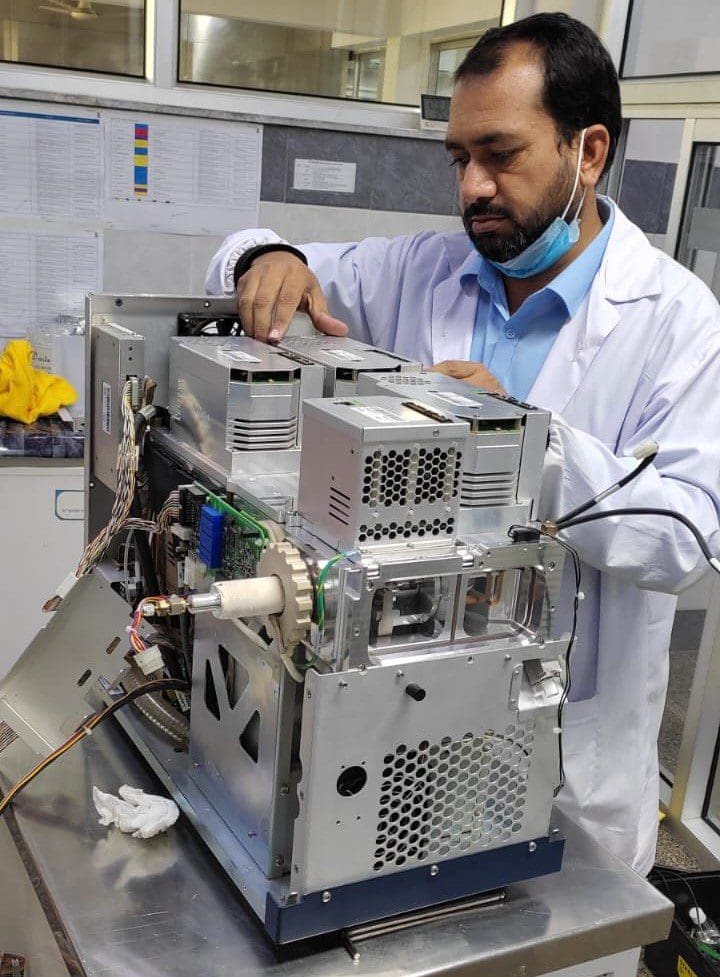

Mentors and role models
Who have been inspirations to you?
Work colleagues who have supported and taught me a lot in my professional career, for example Muhammad Asim.
Who do you consider is a great engineer/scientist in history?
Albert Einstein because he was a great physicist, and I admired his research achievement on the theory of relativity.
Nikola Tesla mainly because of his work on Alternating Current and the Tesla Coil.
Working as a Field Service Engineer in instrumentation and calibration
You worked as a Field Service Engineer for the National Scientific Company Ltd. What did this work involve?
The work was onsite installation, training, and maintenance of scientific and research equipment:
XRD (X-ray diffraction analysis),
XRF (X-ray fluorescence),
NMR (Nuclear Magnetic Resonance),
GC (Gas Chromatography), and
FTIR (Fourier transform infrared).
What were your techniques for solving a challenging problem?
Divide the problem into smaller, more manageable components as this makes it easier.
What were the customer-facing skills you developed whilst working as a Field Service Engineer?
There were five main ones:
Patience
Positive attitude
Problem solving
Professionalism
Time management.
How did you persuade customers to prioritise preventative maintenance?
I persuaded them by education and sharing information. I also highlighted the cost saving and time saving, longevity and performance.
Once an engineer is a good field service engineer, do you think it is possible to work in any industry and with any technology (with some training)?
It may or may not depending on the technology. For example, Electrical and Electronics engineers can move from Instrumentation to the Telecom, Programming, or Biomedical sectors.
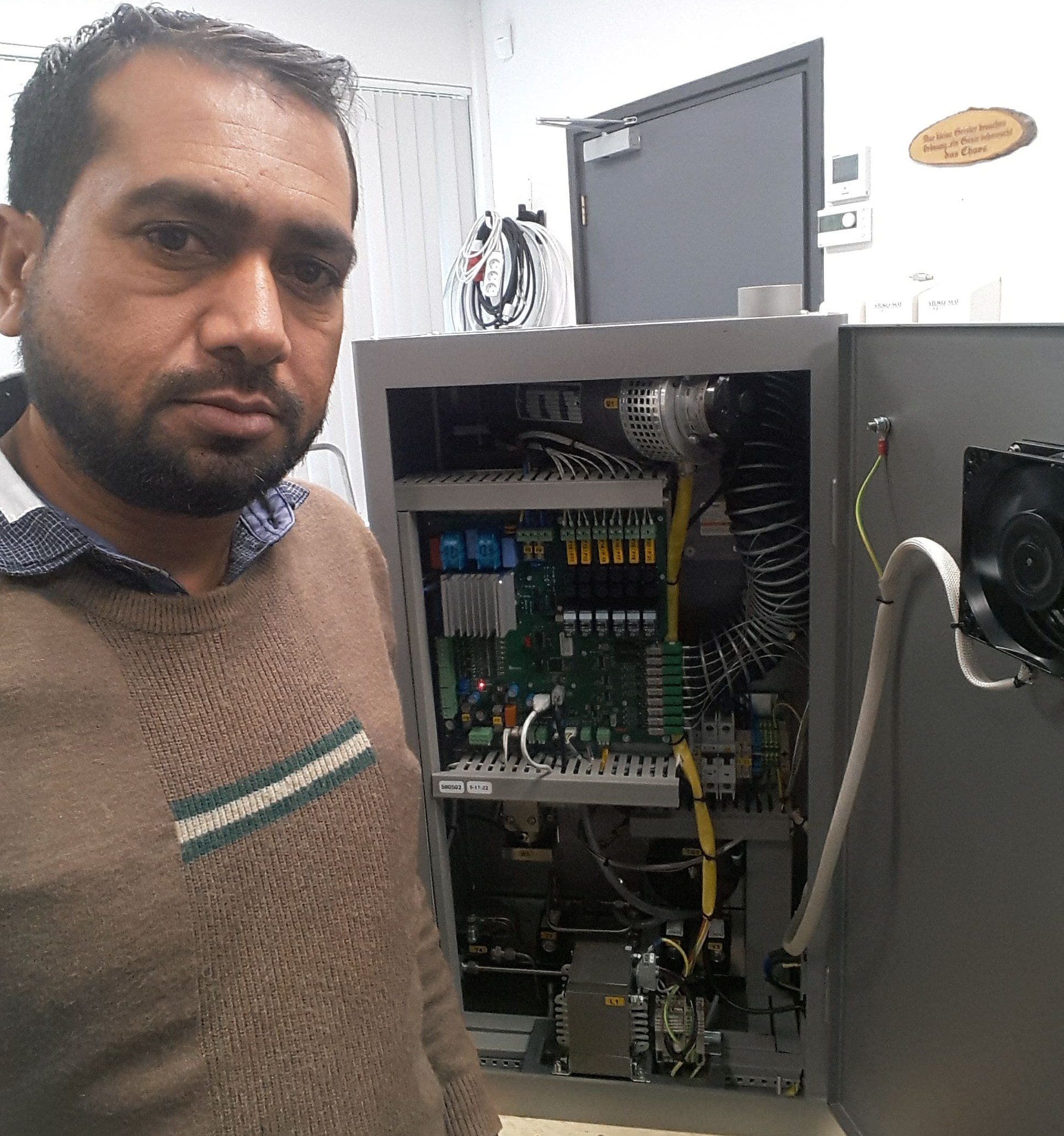

Types of calibration equipment and instrumentation
What are the different types of equipment and instruments you have worked on?
HPLC
GCMS
FTIR
XRD
XRF
NMR
Spectrophotometers
And many other types of scientific equipment.
What has been the most interesting piece of equipment you have ever worked on?
I found GC/MS/MS the most interesting as the technology and working principle are interesting and used for scientific research.
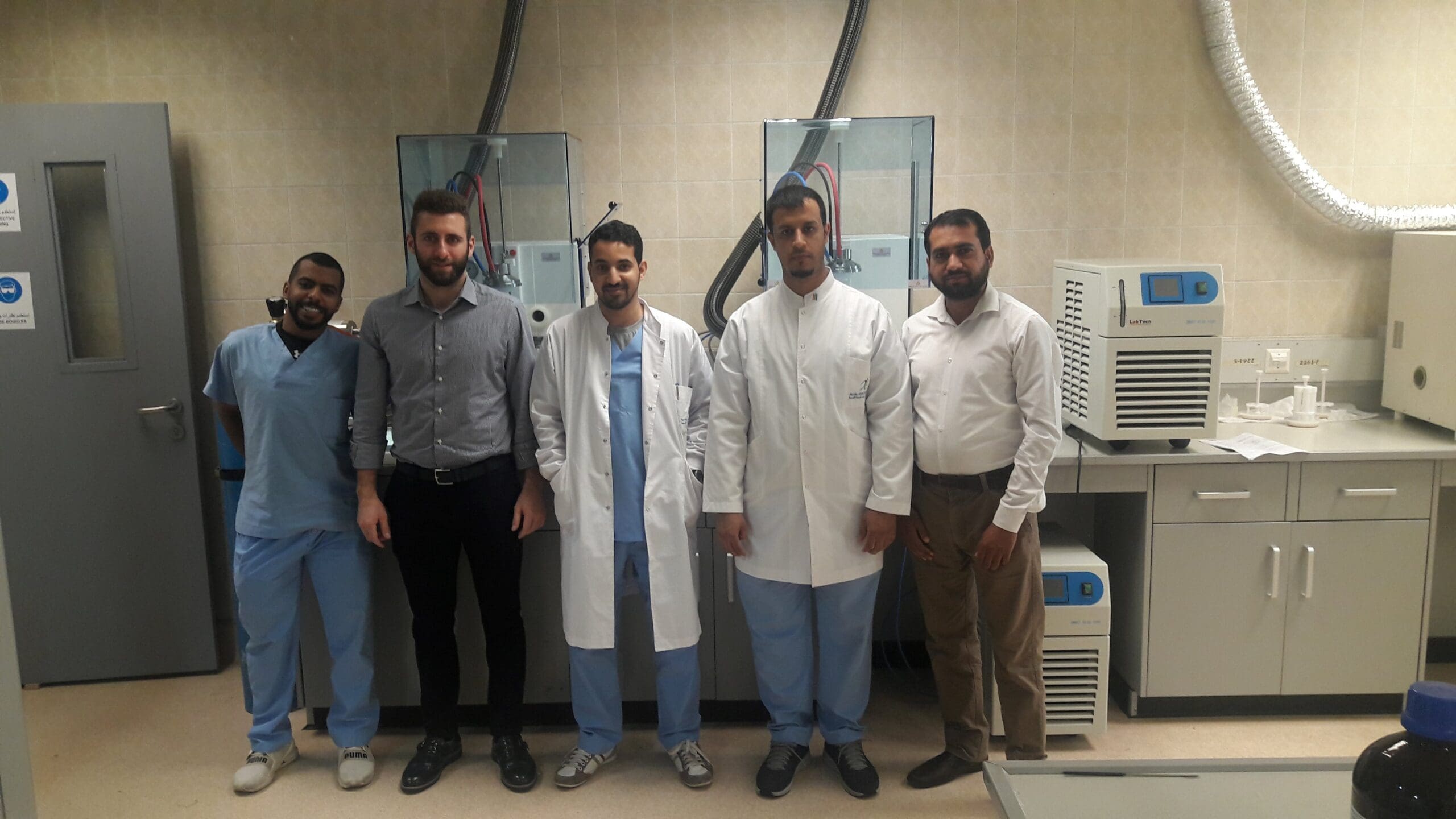

Typical week
You moved to Qarshi Research International Pvt Ltd and a senior role in maintenance. Which skills did you take with you from being a field service engineer?
I took the skill of being able to reach problem solution with zero downtime.
How busy is your typical week?
As we have commercial labs and provide calibration services to other clients too, we have a very busy schedule.
How much of your time is now spent ‘hands-on’ and how much on administration, management, training, and other aspects of your role?
Almost 50-50. I like remaining hands-on so that I remember my work and can still do the critical tasks myself. This is in line with company policy.
Which other people in the organization do you work with?
Lab Analysts, Scientific Officers, Doctors in the Chemical Labs, Physical Testing Lab, and the Microbiology Lab.
Who are the people within your department?
Electrical/Electronic Technicians and Engineers.
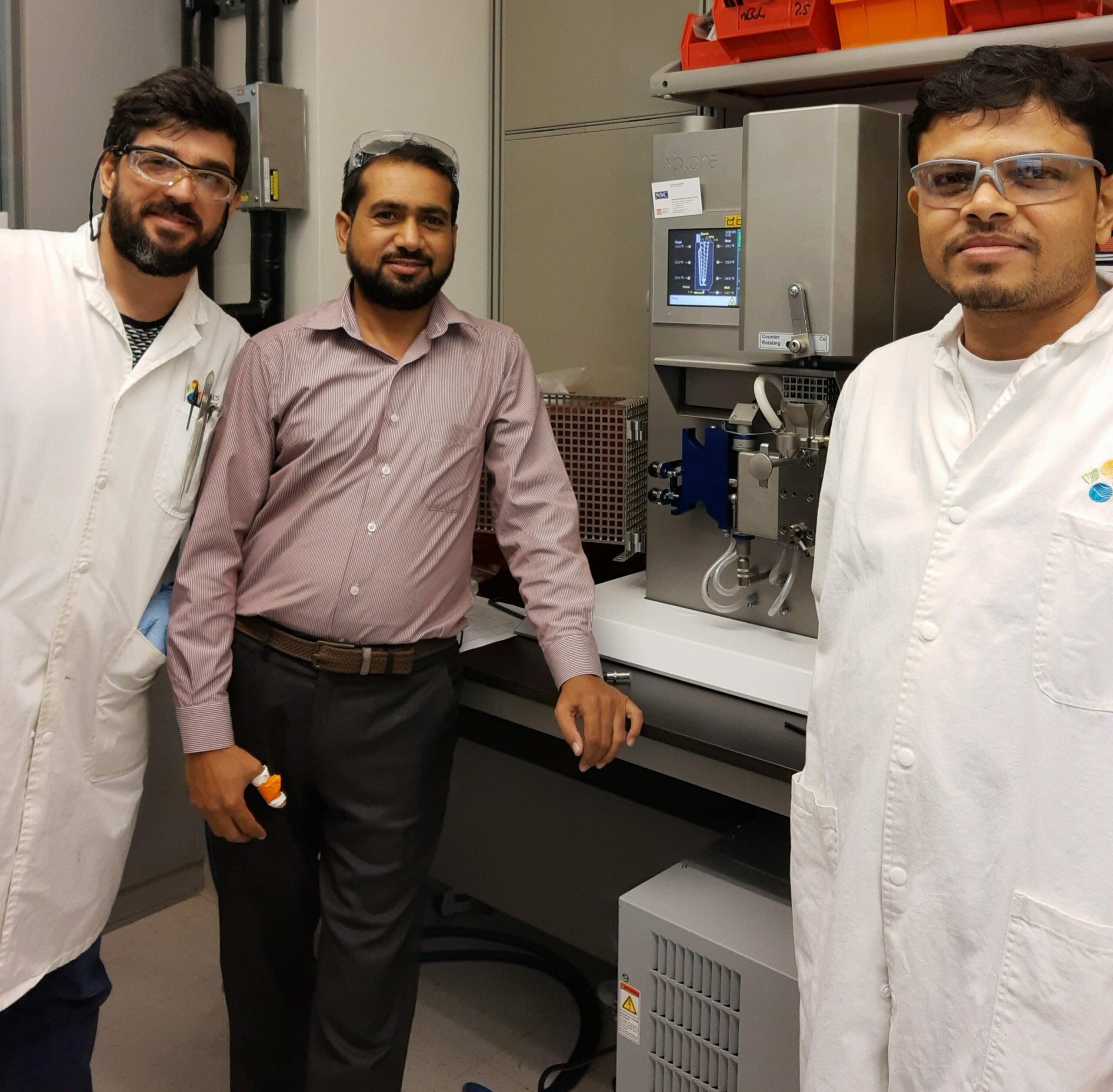

Most challenging part of the job
What is the most challenging part of your job – technical side, logistics or customers?
Getting equipment spare parts in my country.
What has been your most challenging job to date (in your career)?
Service and maintenance of triple quad MSMS. Because I worked on it for the first time even though I hadn’t been trained. It is quite sensitive and also expensive equipment. However, I completed the task successfully.
Making a future star
Apart from a strong technical background, what are the three most important skills for a field service engineer to have?
Patience, professionalism, and strong time management skills.
What sort of personality traits are ideal for a field service engineer to be successful?
The person who has patience, dedication, and loyalty to his work.
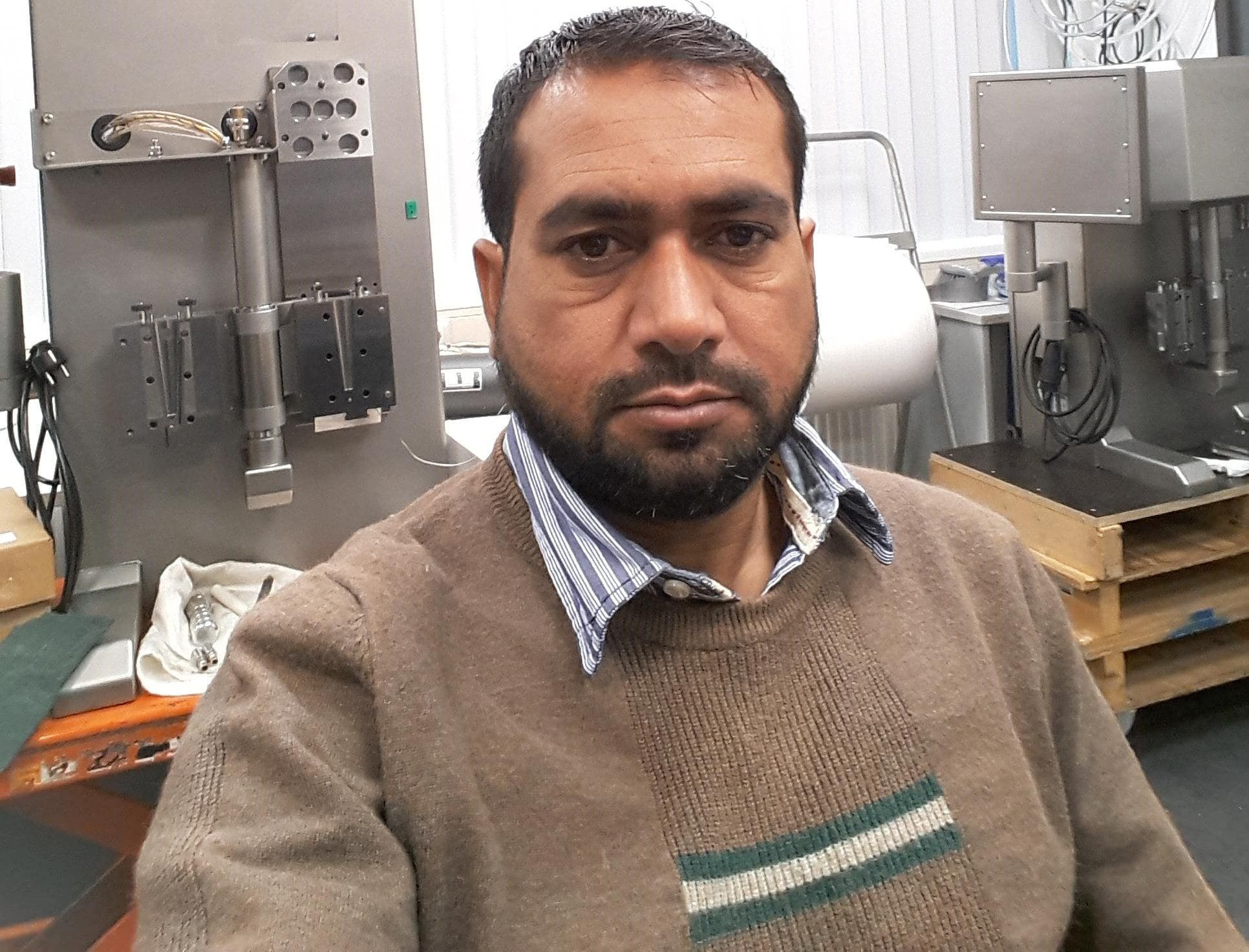

Further reading
Day in the life of a Chromatography Field Service Engineer
Why become a chromatography field service engineer?


Responses